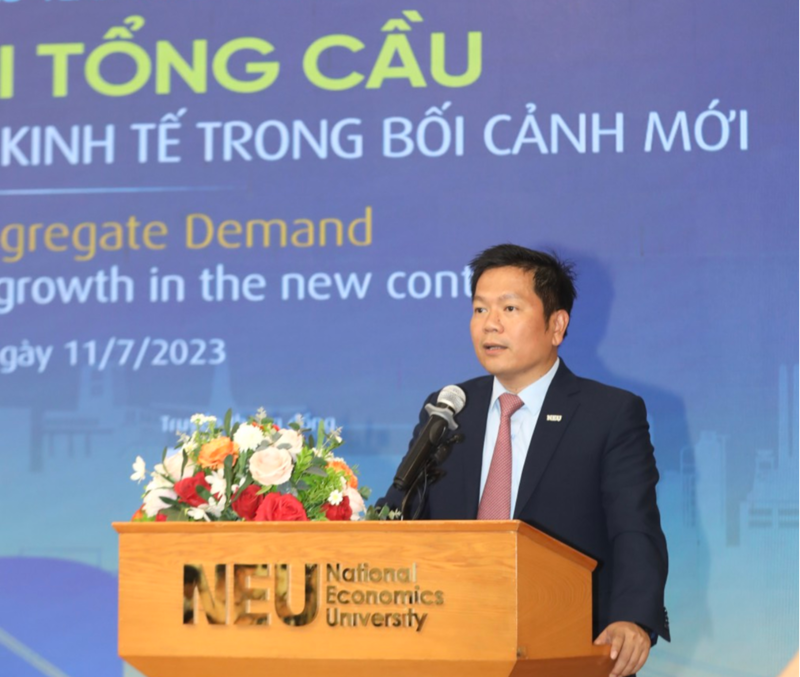The strong decline of aggregate demand in Vietnam’s economy will present difficulties in fulfilling its growth target of 6.5 per cent for 2023 in the context of an unpredictable global situation and a domestic production sector yet to fully recover from the effects of Covid-19, according to Dr. Nguyen Thanh Hieu, Vice Principal at the National Economics University.
He made the comments in an address to the mid-year 2023 macro-economic roundtable dialogue, which opened in Hanoi on July 11.
With the theme “Restoring aggregate demand, promoting economic growth in the new context”, the dialogue was co-hosted by the National Economics University and VnEconomy / Vietnam Economic Times.
The global economy has faced many challenges originating from high global inflation since early in the year, he said.
Central banks have continued tightening monetary policies, while the growth of many major economies has slowed and the Russia - Ukraine conflict remains ongoing, he added.
In that context, Vietnam’s economy has faced many challenges. Growth in the first half of the year reached just 3.72 per cent; low compared to the average over the past decade.
Public investment disbursement during the six-month period was estimated at some VND232.2 trillion ($9.79 billion), equivalent to 33 per cent of the annual target. Disbursement of non-State investment rose just 2 per cent year-on-year.
Vietnam attracted $13.43 billion in FDI during the first half, down 4.3 per cent year-on-year.
In international trade, Vietnam posted a trade surplus of $12.25 billion but both export and import revenues were down, by 12.1 per cent and 18.2 per cent, respectively, year-on-year. The fall in export revenue was due to lower demand in Vietnam’s key markets, such as the US, ASEAN, the EU, and other Southeast Asian countries.
Credit growth, meanwhile, reached only 3.13 per cent in the first half; down significantly against the 8.51 per cent posted in the same period last year.
“Low credit growth means the ability to absorb capital in the economy is weak, even though interest rates have been cut,” Dr. Hieu said.
Disbursement of the second phase of the economic recovery support package in 2022-2023 period remains quite low, he added.
The figures reveal a strong decline in aggregate demand in Vietnam’s economy, he explained.
This requires that the government and relevant ministries and agencies promptly take appropriate measures in a timely manner to restore aggregate demand to boost economic growth in the new era.
The roundtable is also to review Vietnam’s economy in the first half of the year and assess aggregate demand in the new context in order to propose strategic and timely solutions to restore demand and accelerate growth, Dr. Hieu said.
“We expect that through this roundtable, a comprehensive assessment of the economy and aggregate demand will help us diagnose challenges and opportunities for the development of Vietnam’s economy,” he added.





![[Interactive]: Economic overview - Q4/2025](https://premedia.vneconomy.vn/files/uploads/2026/01/06/29254292bae3426d91b9af031f679ce6-61851.png?w=400&h=225&mode=crop)



 Google translate
Google translate